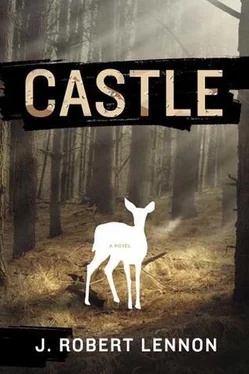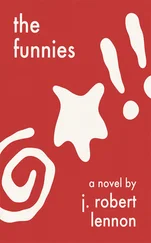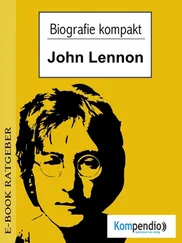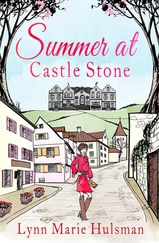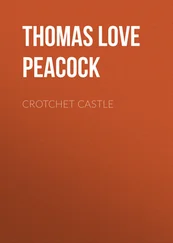And so it was with some determination that I worked on the floors and walls, and, as I have implied, I finished them within one week. I also ordered, and accepted delivery of, a suite of basic furniture from a catalog. My only other contact with the outide world during this time came in the form of phone call.
So engrossed was I in my work and in the contemplation of the work to come, that when the caller identified herself, I had no idea at first who she was. “Andrea from Barris and Haight” is what she said, and it wasn’t until she added “The law firm? About the abstract?” that I suddenly remembered our conversation of the previous week.
“Yes, of course, Andrea!” I said. I wiped the sweat and dust from my face and walked out to the stoop to talk.
“I’m calling you back about the crossed-out name in your abstract,” she said. “I’m afraid we’ve been unable to find the name. All copies of the document that are in our records are crossed out, just like yours.”
“I see.”
“I wish I could have been of greater help.”
I could detect, in Andrea’s voice, a great relief — as if she had expected the call to be contentious, and now believed it wasn’t going to be. I decided to pursue the matter further.
“You might recall, Andrea, that I merely asked why the name was blacked out, and who is responsible for having done so. I am quite concerned about this meddling in my affairs.”
She said, perhaps a bit uncertainly, “I have no other information for you, Mr. Loesch.”
“But didn’t you do any further research? At the Henford town offices, for instance?”
Now her voice fell into the slightly awkward pattern of rote memory — she had anticipated this question and had prepared an answer. “I’m sorry, the town offices had no other information, either.”
This sounded to me like a lie. “Is that so?”
“I’m afraid it is.”
“What would you say,” I asked, “if I told you that I had been in touch with the town offices, and asked if anyone had been in to research those records, and been told that no one had asked for them in quite some time.”
She seemed flustered, but her answer was clear. “Whomever it was you spoke to, Mr. Loesch, it could not have been the person my colleague spoke to.”
“And who was that person, Andrea?”
“I don’t know, since I wasn’t the one who did the research.”
“Which of your colleagues did the research?”
“Mr. Loesch,” she said, her voice hardening, “if you wish to know more, you will have to investigate it yourself. We didn’t find the information you wanted. I’m sorry.”
“So am I, Andrea, so am I.”
“Good afternoon, Mr. Loesch.”
The line cut off before my “goodbye” could leave my lips.
Heph arrived as promised on Wednesday to replace the fuse box and wiring. He nodded appreciatively at my work. “Didn’t do all this on your own, didya, Mr. Loesch?” he asked.
“Yes, I did, in fact.”
“I can hardly believe it,” he said, and I chastised myself for thinking that I detected in his voice a touch of irony. He crouched down on his haunches and rubbed his fingers lightly against the floor. “Waxed this, didya? How many coats?”
“Five.”
He nodded. “Real good,” he said. “Real good.” Then he stood up, his joints cracking, his hands on his hips. He was wearing the same getup that he had worn last week, but the jumpsuit was light blue this time, and the earflaps on his cap were tied together over the dome, their ropes intertwined in a neat bow. “Yalp,” he said, “it’s real nice to see a house come back from the dead, as it were.”
“It does feel good.”
“Nobody been up here for a long time. I remember hunting down in the bowl there.”
“You mean on my land?” I asked.
He narrowed his eyes. “Welp, it wasn’t your land then, now was it. We used to go shooting deer. Gave it up though. Too easy to get lost.”
“Really?” I asked, gazing out the window. “It’s not so much land.”
“Too rough. No paths. And it’s a bowl, see, you get all turned around.” He waved his hand in the air, dismissing the very concept. “Not much to shoot anyhow.”
“I’m sorry to hear that,” I said.
“Oh, you’ll come across something or other,” he said. But it seemed disingenuous, and I let the matter drop.
Heph disappeared into the basement, and soon I began to hear the clanking and scraping of his labor, accompanied by a cheerful whistle. I stood rooted to the spot for some minutes, staring out the window, and a great exhaustion and sadness seemed to come over me, like the sliding of a white sheet over a dead man’s body. The landscape appeared to blur, and I felt a tightness in my throat. It was the whistling. Gentle, round, with a deep vibrato, it carried no recognizable tune, yet was deeply evocative. It pulled me out of the here and now, and carried me off to some other, watery place, where I floated, paralyzed, unhappy and slightly afraid.
After an indeterminate interval, Heph emerged from the cellar, evidently to retrieve some supplies from his van. His boot covers crunched quietly against the floorboards, a sound akin to that of autumn leaves. When he saw me standing at the window, he stopped.
“Mr. Loesch!” he said, as if shocked and disappointed. “Are you still standing there?”
“Yes, Heph,” I said without turning. “I seem to be in something of a brown study.”
The electrician was silent for a moment, and though my back was to him, I imagined that he was nodding sagely. I found myself wanting, very much, to trust him. “You know, Mr. Loesch,” he said, “it seems to me you’ve been working awfully hard. Maybe you ought to reward yourself with a little break. Me, I like to sit back and read a good magazine. Or treat myself to a good lunch.”
“It’s too early for lunch,” I said.
“You’ve lost track of time! Why, it’s nearly noon!”
I looked at my watch, and somehow the motion of my arm broke my reverie at last. “You’re right, Heph. Maybe I will take a break.”
“Seems to me all you been doing these past couple weeks is getting ready. You got to go live your life some.”
“Well put,” I said, blinking the haze from my eyes. The woods sprang into focus, each green bud visible on the trees.
Yes — perhaps Heph was right, whatever his motives for his comments. Perhaps the life I had led so far was, in fact, nothing more than a long period of wandering, after having been led astray, years before. Perhaps my judgment had been clouded. The thought, of course, was deeply frustrating, for if it were so, then I had wasted a great deal of time and effort. But I was not yet old, and there was much I could accomplish, if only I could take my first steps onto the correct new path. Maybe that path began here, in these woods.
Heph lingered behind me a few moments more, as if to make sure he had gotten through to me. Then he continued on his way. I waited until he had collected his supplies and returned to the cellar, and then gathered myself and walked out to my car.
I hadn’t intended to make much of my trip into town. But, as it happened, the closer I got to Milan, the more excited and enthusiastic I became. Heph’s words rang in my head — it was time to stop preparing and start living. It was cold today, but soon the warm spring weather would arrive, and I would go out into nature, and be a part of it. I found a sporting goods store and picked out a tent and sleeping bag, a modest fishing rig, and a pair of lightweight, waterproof boots — a far cry from the heavy, bulky footwear I was accustomed to. I then treated myself to a lunch at the local Chinese buffet, where I discovered that I was hungry beyond measure. Time and time again, I loaded my plate with steamed white rice, sweet orange-flavored chicken, fried pork dumplings, and spicy beef and vegetables, only stopping when I literally could no longer consume another bite. It occurred to me that I had been neglecting my nutrition, and had probably lost a great deal of weight over the past two weeks. As I sat there digesting, in a slightly dirty booth near the slightly dirty window, beneath a buzzing neon sign, those weeks seemed like a mere hiccup in time, a transitional period that had now come to a close. This greasy, sumptuous meal was the line that divided that period from the rest of my life, which, for the first time in recent memory, I was ravenously eager to begin living. I staggered, packed with food, out to my car, then drove to the grocery store and bought enough provisions for two weeks. I also bought seeds, tools, plastic fencing, and posts at the garden center, and arranged to have the junk in my yard hauled away. I have a very large car, but the rear was full, all the way to the ceiling.
Читать дальше
